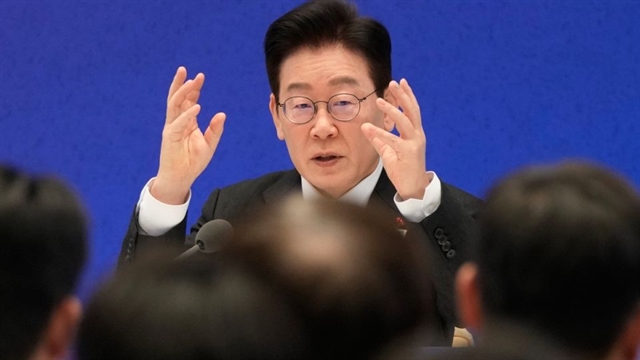 World
World

Morocco and the UN organise, on 10-11 December, an intergovernmental Conference on migration which adopted the Global Compact for Migration after having been negotiated in New-York.
Morocco and the UN organise, on 10-11 December, an intergovernmental Conference on migration which adopted the Global Compact for Migration after having been negotiated in New-York.
In His Message to the Intergovernmental Conference on the Global Pact for Migration, which opened on Monday, December 10, in Marrakech, King Mohammed VI of Morocco mentioned that this event coincides with the commemoration of the 70th anniversary of the Universal Declaration of Human Rights, when back in 1948, mankind became conscious, once and for all, of the universal nature of human rights, over and beyond the notion of states and of different cultures and civilisations.
The Kingdom of Morocco’s interest in migration is neither recent nor incidental. Quite the contrary. It reflects a longstanding, voluntary commitment expressed through a policy which is humane in its philosophy, global in its substance, pragmatic in its methodology and responsible in its approach, He said.
Within the same vain, Morocco’s approach consists in invariably seeking to strike a beneficial balance between realism and proactive action - between the legitimate interests of States and respect for the human rights of migrants. Because of the national success of this approach - to which we have always been committed - my African brothers entrusted me with the mandate of African Union Leader on the Issue of Migration.
Migrants’ rights cannot be ignored simply because there are security concerns. Their rights are inalienable. The side of the border on which a migrant stands does not make him or her more or less human. Addressing security concerns should go hand in hand with socio-economic development policies which tackle the root causes of risky migration. Finally, security concerns should not be invoked to deny mobility. In fact, the latter can be turned into a lever of sustainable development, at a time when the international community is seeking to implement the 2030 Agenda, he added.
In this respect, Morocco’s leadership in the African Union on this issue led to the African Agenda on Migration, which was unanimously adopted by the African Union Conference in January 2018, and fully in line with our international commitment, through the Global Compact.
The African Agenda on Migration, and the Global Compact, reflect a constant pursuit of innovative compromises between border management requirements and the protection of migrants’ human rights, between migration issues and development needs. Both concern and imply collective responsibility, answerable sovereignty and humane pragmatism, he underlined.
The African Agenda has dedicated a fully-fledged institution to migratory dynamics, the African Observatory for Migration and Development, explicitly mentioned in the Compact, will have its headquarters in the Kingdom of Morocco and will see its work effectively enhanced through networking with similar institutions in other regions.




